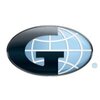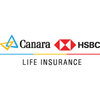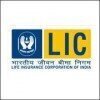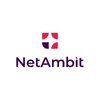Filter interviews by
CSIR-CSIO Research Analyst Interview Questions and Answers
CSIR-CSIO Research Analyst Interview Experiences
1 interview found
(1 Question)
- Q1. Mosfet, Semiconductor
Top trending discussions






Interview questions from similar companies

I applied via Company Website and was interviewed before Oct 2020. There was 1 interview round.
Interview Questionnaire
1 Question
- Q1. Typical get to know you and behavioural questions
Interview Preparation Tips

I applied via Recruitment Consultant and was interviewed in Jan 2021. There were 5 interview rounds.
Interview Questionnaire
6 Questions
- Q1. Insurance topics
- Q2. What is insurance
- Ans.
Insurance is a contract between an individual and an insurance company to protect against financial loss.
Insurance provides financial protection against unexpected events
Premiums are paid to the insurance company in exchange for coverage
Types of insurance include health, auto, home, and life insurance
Insurance policies have terms and conditions that must be followed to receive benefits
Insurance helps individuals and bu
- Q3. Underwriter
- Q4. Nominee
- Q5. Premium
- Q6. Types of insurance
- Ans.
Types of insurance include life, health, auto, home, and travel.
Life insurance provides financial support to beneficiaries upon the policyholder's death.
Health insurance covers medical expenses and treatments.
Auto insurance covers damages and injuries resulting from car accidents.
Home insurance covers damages to the home and personal property.
Travel insurance covers unexpected events while traveling, such as trip cance
Interview Preparation Tips

I applied via Recruitment Consultant and was interviewed in May 2021. There was 1 interview round.
Interview Questionnaire
6 Questions
- Q1. Tell me about yourself
- Q2. What is tangible asset
- Ans.
A tangible asset is a physical asset that has a measurable value and can be seen or touched.
Examples include buildings, land, machinery, and inventory.
Tangible assets are typically depreciated over time.
They are recorded on a company's balance sheet.
Tangible assets can be bought, sold, or traded.
They are different from intangible assets, such as patents or trademarks.
- Q3. What is intangible asset
- Ans.
An intangible asset is a non-physical asset that has no intrinsic value but has value due to its legal or intellectual property rights.
Intangible assets include patents, trademarks, copyrights, and goodwill.
They cannot be touched or seen but can be owned and traded.
Their value is based on their ability to generate revenue or provide a competitive advantage.
Intangible assets are recorded on a company's balance sheet and...
- Q4. What is insurance
- Ans.
Insurance is a contract between an individual and an insurance company to protect against financial loss.
Insurance provides financial protection against unexpected events
Premiums are paid to the insurance company in exchange for coverage
Types of insurance include health, auto, home, and life insurance
Insurance policies have terms and conditions that must be followed to receive benefits
Insurance companies use actuarial
- Q5. What is account payable
- Ans.
Accounts payable is the amount of money a company owes to its suppliers or vendors for goods and services received but not yet paid for.
Accounts payable is a liability on the balance sheet.
It represents the amount owed to suppliers or vendors for goods or services received.
Accounts payable is usually paid within a certain period of time, known as the payment terms.
Examples of accounts payable include bills for utilitie...
- Q6. What is account receivables
- Ans.
Account receivables refer to the money owed to a company by its customers for goods or services provided on credit.
It is a type of asset on a company's balance sheet
It represents the amount of money owed to the company by its customers
It is typically collected within a certain period of time, usually 30-90 days
Examples include unpaid invoices, outstanding bills, and overdue payments

Interview Preparation Tips
Experience: CAT-type data interpretation test.30 questions in 35 minutes.Fast graph interpretation and quick calculations.
Tips: CAT preparation will help.
Duration: 35 minutes
Total Questions: 30
Round: Case Study Interview
Experience: A simple case, based on the credit card industry or any other field, is given. Cases lay more focus on quantitative skills apart from the focus on asking the right questions.There is a shortlist made after each case round.
Tips: Fast calculation and insight into what data may be required to solve the case are essential.Practice the cases given on their website and at www.beprepared.in.
Round: Behavorial Interview
Experience: Questions are asked based on incidents- give examples of instances when you led a team successfully or when you had to go against your team, etc.
Tips: Practice HR questions from HLPQ.
General Tips: Positions Of Responsibility (PORs) are required but not mandatory. They are of secondary importance if one has scored well in the exam. A good CV with good internships/projects will help one to get shortlisted.
Skill Tips: "Student needs to be quick with simple percentage calculations."
Skills: Basic Quantitative skills
College Name: IIT Kharagpur

Interview Preparation Tips
Experience: Written Test ( DI questions, each involving 2-3 plots)
Round: Interview
Experience: Started with a “Tell me something about your-self question”. I believe it was just to set the ball rolling and was not evaluated. The interviewer then gave me a case question wherein I had to make a choice between a diesel and a petrol car. There were 3 parts to the question (some candidates were asked 1 / 2 as well). The first dealt with finding the breakeven point given the basic set of cost, fuel price and fuel consumption data. Next was to find breakeven considering the money was acquired at a certain rate of interest (bond/loan). Both these results involved basic calculation and I was comfortable with them. The final part was about calculating the breakeven, again, but this time considering depreciation. This is where I was caught off guard and though I did turn up with a figure, the interviewer was not completely satisfied.
General Tips: Do get a basic background of the firm and also about terms in the related field.
Skill Tips: I was not hesitant and was reasonably confident while answering. What went wrong was perhaps the fact that I was caught unaware of how depreciation works and how it had to be included in the equation. I fumbled a lot with the equation and puzzled as to where to include terms for depreciation etc.
College Name: IIT KANPUR

Interview Preparation Tips
Experience: There was test which was purely data analysis and calculator was allowed. So the procedure that they follow is that first they shortlist 50 people and a small case interview is followed. The case I was asked was to calculate the change in the cost of a grocery store if it has changed its model from cash on delivery with a physical store to an online portal which has cash on delivery option. As I had practiced it already I took some time to give structure and then gave 3-4 reasons for change in cost and then he gave me some numbers based on which I had to calculate the break even time period or amount . But I think he expected a little bit different approach or was searching for a different solution as I wasn't selected for the final interview sessions. I think 22 people were selected for the final interview session out of which 2 people were finally selected in Cap One.
College Name: IIT KANPUR

Interview Preparation Tips
Experience: I started my placement journey by getting shortlisted in Capital One on Day 1. They shortlisted 125 candidates on the basis of resume.
Round: Case Study Interview
Experience: Then, they took a case study interview and reduced the number to 30.
Round: Test
Experience: Then, they again took an aptitude test and selected none of them. But, on the day 2, I sat for the GDs and interviews of Coca Cola and got selected.
College Name: IIT KANPUR

Interview Preparation Tips
Experience: There was initially an interview of about 5 mins in which they asked me to describe a situation where I worked in a team.
Round: Case Study Interview
Experience: Then there was a case study round. It was a slightly involved case on the credit card industry and involved a lot of
calculations. There were 3 different credit card strategies with different rates of interest and credit limits and we had to choose the best strategy for the company. I came up with correct strategy and hence got through the first round.
The 2nd case was that of Dominos evaluating a new scheme wherein they would offer a 30% discount instead of 100%, in cases where the pizzas could not be delivered within 30 minutes. Next the discount was changed to 70%. I was asked to evaluate the on-time delivery that they can risk not to have in order to make the same profit as they make when they give 100% discount and have 90% on-time delivery. Then I was asked to plot a graph between on-time delivery and the discount offered and interpret it. It was there that I lost track and couldn't come up with the right conclusion. Nevertheless I was selected for the next round.
Round: Behavioural Interview
Experience: It was a behavioral interview wherein I had to describe them 3 situations in detail. During the entire interview the interviewer kept writing something on the paper. The key to this round was choosing the right incidents and then describing each and every point in detail. It lasted for about 30 mins. Ideally there were to be only 2 rounds of case interview and one behavioral interview but I was again called for a 3rd case interview round. It was very similar to the 1st case except that the credit card company was replaced by a dish-tv one. This one didn't go very well as I was very much exhausted and hence faltered at several places.
College Name: IIT KANPUR

Interview Preparation Tips
Experience: The test was purely based on Data Interpretation. Every page had 3 charts and 5 objective questions based on those charts. There was severe time constraint in the paper and my selectivity among the questions proved beneficial in clearing the cut-off.
Duration: 60 minutes
Total Questions: 30
Round: Interview
Experience: Preliminary Case Interview: Duration -10 minutes (Just after the Written Test) - One on One Case Interview.
"Tell me about yourself" was the first question asked to me. I just told him a few things about myself mainly focusing on the financial projects I did. Then he gave me a trivial case study as follows, "There are two economical classes, Prime and Sub-Prime, and I had to give a Motorcycle loan to one of them. Whom should I give?" I was supposed to ask him any information that I would require to solve this case study. Whenever I used to get stuck he gave me hints to work upon. And finally, based on the value he gave me I could compare the profit from both the classes. The main thing about the case study was the way of solving it and how interactive was I with the interviewer.
After this, the next round was held during the placement time. They had given us the link for few practice case-studies. The Case Study given at their website is the most important one. It helps you understand the standard approach they look for in a candidate.
Round: Interview
Experience: 1st Case Interview: Duration – 50 minutes
My interview was of the longest duration compared to others, so if your interview is a lengthy one then be happy :). The case was based on Credit insurance involving simple mathematics to reach a logical conclusion.
The Case Study: - "Capital One reached its customers for new offers through postal mail. They had 2 kinds of postal services, A class and C class. In A Class, if the customer had changed his address then the postal service would update the address on the letter and it would reach the customer at the new address. In C Class, if the address is changed then the customer would not get the mail. I was supposed to tell which one of the postal service was better in two conditions, 1st when no. of mail to be made is fixed and 2nd when amount to be spend in mailing is fixed."
I found this case simpler than the earlier one. I managed to complete the case in just 20 minutes. The interviewer was very impressed with the speed with which I was able to solve the case. It was enough to make me realize that I had made it.
Tips: The main thing that you need to remember in Case Study of this sort is that you need to speak your mind. It helps the interviewer understand the way you are thinking. So if you have made some calculation mistake he wouldn’t mind that because he knows that you are going in the right direction. This was something the interviewer told me that he liked about
me.
General Tips: The Biggest question that all of us face in final year is "WHAT NEXT". With the options like CAT/GRE/CORE/FINANCE/CONSULTING it becomes extremely difficult to select just one. Initially I had no idea what it was going to be, but after my internship I knew that I wouldn't be going for either core or higher studies. After talking to seniors, I realized that doing MBA after one or two years of work experience would be better - you know what you have to focus on and would also give you a smoother platform to change your field of job if
you are not comfortable in it. So my choices just narrowed down to jobs in either finance or consulting. Looking at the job scenario in our placement season, I knew I had to prepare for all of them. That is one of the reasons I appeared for CAT because it is always good to have an option and also preparing for CAT helps a lot in placement preparation. One needs to be thoroughly prepared for each of the placement processes.
Resume:
A resume is one of the most important things which mark the first impression upon the interviewer. You should devote ample time to work upon it. Every company looks for a different kind of candidate to suit their purpose; make sure your resume fits that profile. Prepare resumes separately for each sector with some minor changes for companies of same sector. Get your resume checked and rechecked by some alumnus in the company you are
applying for.
PPTs:
The best way to know about the company is through its PPT. It gives you the details of the work profile and also tells you what kind of candidate the company is looking for. It is an opportunity to get all your queries, regarding the company and the work profile clarified.
Written Test:
Usually the CAT preparation is more than enough to crack the data interpretation and aptitude tests (excluding the technical tests). Practice plays an important role here to be able to solve the lengthy tests speedily and accurately. People aiming the finance companies must read Economic Times (specially the editorials) regularly to form a broader perspective of the financial situation all over the world.
Group Discussions:
I used to think that GD is just another formal bulla session that we have. But it turned out to be a complete disaster when I had a GD round during an Internship process. It is just not what you speak that matters, but also how well you convey your points, how well you work in a group, do you understand the group dynamics, your body language, and other group etiquette that matter. The most disappointing thing was that when SPO had started this session for GD practice very few people turned up. It is through these sessions that you learn
the Do's and Don’ts of a GD. With every GD session that we used to have, I used to learn some new thing or the other.
Case Studies:
At first case studies seem to be highly intimidating. The workshops on Case Study by SPO helped me clear all my apprehensions, and then the process became a lot easier. Initially we used to solve a case in a group of 2-3 people and afterwards we did it individually discussing the methodology that we adopted and the different solutions that we approached. The discussions were the most important part as we learned what mistake we committed. It helped us frame our mindset in the right direction.
HR Interviews:
To be able to do well in an HR interview one needs to do a lot of introspection about one’s own self. This helps you in answering some very basic questions like your strengths, weakness, your future objective etc. You should be able to modify your answers according to the company profile. I prepared for HR interview in a group of 3. Initially, we gathered all the questions that the interviewer is likely to ask. We divided our answers based on the
company profile and also prepared examples to support our qualities. Finally we conducted 3-4 rounds of mock interviews.
College Name: IIT KANPUR
CSIR-CSIO Interview FAQs
Tell us how to improve this page.
Interview Questions for Popular Designations
- Research Associate Interview Questions
- Research and Development Interview Questions
- Senior Research Associate Interview Questions
- Research Scientist Interview Questions
- Researcher Interview Questions
- Research Intern Interview Questions
- Clinical Research Coordinator Interview Questions
- Data Research Analyst Interview Questions
- Show more
CSIR-CSIO Research Analyst Interview Process
based on 1 interview
Interview experience
Interview Questions from Similar Companies
|
Project Associate
10
salaries
| ₹3 L/yr - ₹4.3 L/yr |
|
Project Assistant
9
salaries
| ₹3 L/yr - ₹5 L/yr |
|
Research Intern
5
salaries
| ₹1.8 L/yr - ₹2.9 L/yr |
|
Project Assistant II
5
salaries
| ₹4 L/yr - ₹4.5 L/yr |
|
Project Assistant III
5
salaries
| ₹3.3 L/yr - ₹4 L/yr |

Gallagher

Canara HSBC Life Insurance

Life Insurance Corporation of India

Bank of Baroda
- Home >
- Interviews >
- CSIR-CSIO Interview Questions >
- CSIR-CSIO Research Analyst Interview Questions









